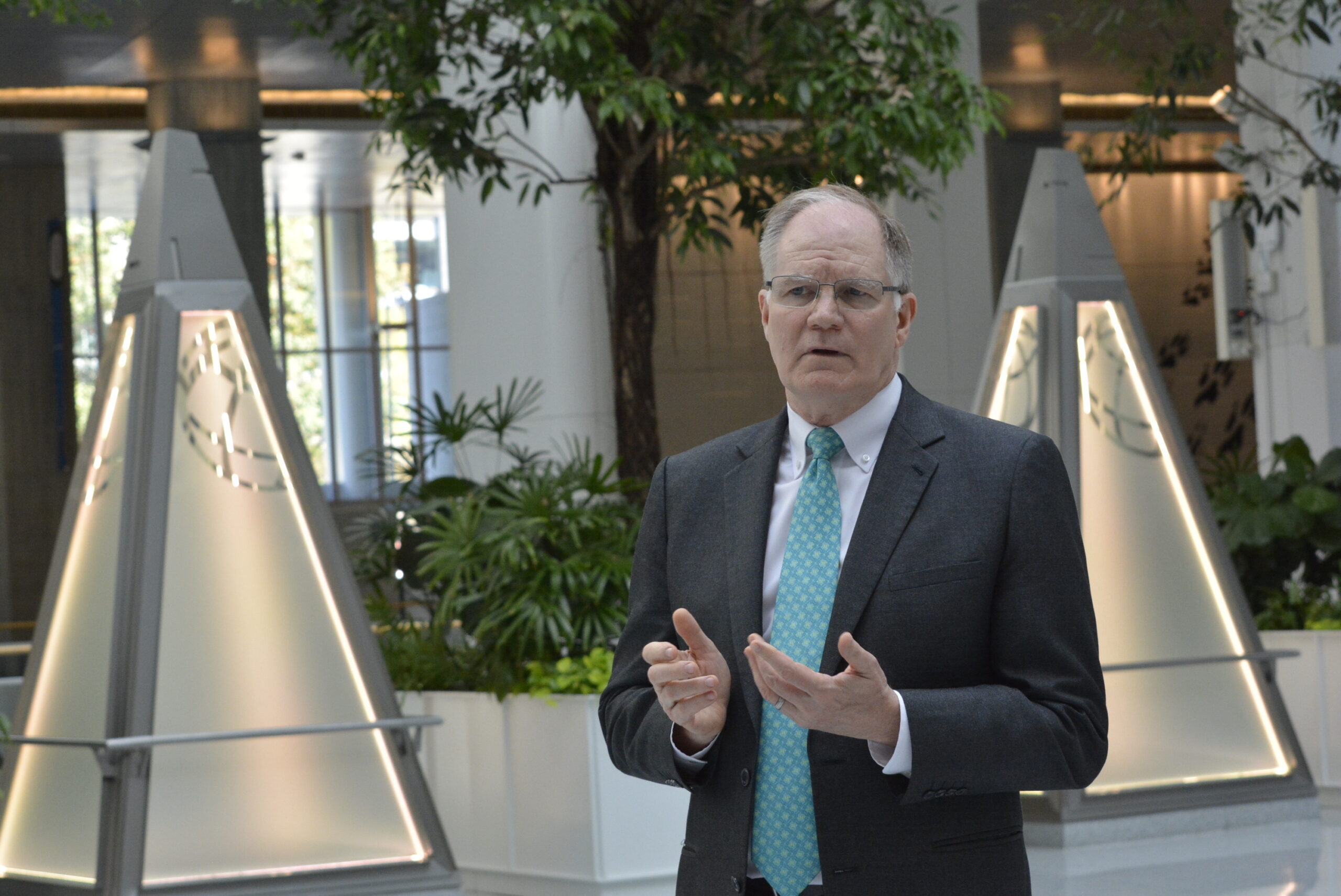World Bank Adjusts Forecast for Barbados Growth in 2024 Amid Concerns for Latin America and the Caribbean

April 11, 2024
The World Bank revised Barbados' 2024 growth forecast to 3.7%, citing low growth hindering development in Latin America and the Caribbean, with regional GDP projected to expand gradually.
The World Bank slightly lowered its 2024 growth forecast for Barbados to 3.7 per cent in its regional economic outlook released on Wednesday, compared to 4.0 per cent outlined in its Global Economic Prospects report published in January.
The global financial institution further outlined prospects of 2.8 per cent for 2025 and 2.3 per cent a year later for the island.
The economic predictions come as the World Bank warned Latin America and the Caribbean to take serious stock of what it described as “persistent low growth that remains a barrier for development”, against the backdrop of predictions that regional Gross Domestic Product (GDP) will expand by 1.6 per cent in 2024, 2.7 per cent in 2025 and 2.6 per cent in 2026.
“These rates are the lowest compared to all other regions in the world, and insufficient to drive prosperity. With social transfers declining and wages not yet rebounding to prepandemic figures, many households are under pressure,” the Bank said in its latest report titled Competition: The Missing Ingredient for Growth? It said the region has reached a critical juncture where growth has stalled, undermining progress.
At Wednesday’s press conference, Chief Economist for Latin America and the Caribbean William Maloney told journalists: “Whether it’s two per cent or 2.5. per cent or 1. 5 per cent, these rates of growth are just way too low to make a meaningful dent in poverty reduction or facilitate social mobility. We have to be thinking of a 10-year horizon of what reforms we need to undertake as a region to get us to be talking about growth rates of perhaps five per cent.”
The World Bank report said factors driving these growth numbers include low levels of investment and domestic consumption, elevated interest rates and high fiscal deficits, declining commodity prices, and uncertainty in the prospects of important partners such as the US, China, Europe and other G7 countries.
It also pointed out that an adverse global scenario, marked by geopolitical tensions, disruptions of shipments through the Suez Canal, and the El Niño phenomenon could further dampen prospects.
Maloney expressed concern that even as the shock of the COVID-19 pandemic dissipates, growth rates in Latin America and the Caribean mirror those of the 2010s and this reveals that the region has failed to address persistent obstacles that have blocked its potential, including low education levels, poor infrastructure, and high investment costs, which also fuel social discontent.
“An agenda that drives growth forward is one that addresses these gaps seriously,” the World Bank economist said. “Otherwise, the region will remain stuck and won’t be able to attract investments or seize new opportunities, such as nearshoring or the low-carbon economy. Improving competition systems should be part of these strategies, leading to improvements for consumers and businesses.”
The report highlights potential areas for action, emphasising that leveraging competition policies and institutions is key to any impactful growth strategy.
The World Bank said that fostering competition is central to reviving the economy and winning back investor confidence.
When competition is underpinned by sound policies, institutions and frameworks, companies innovate, become more efficient and provide technological breakthroughs, it added.


